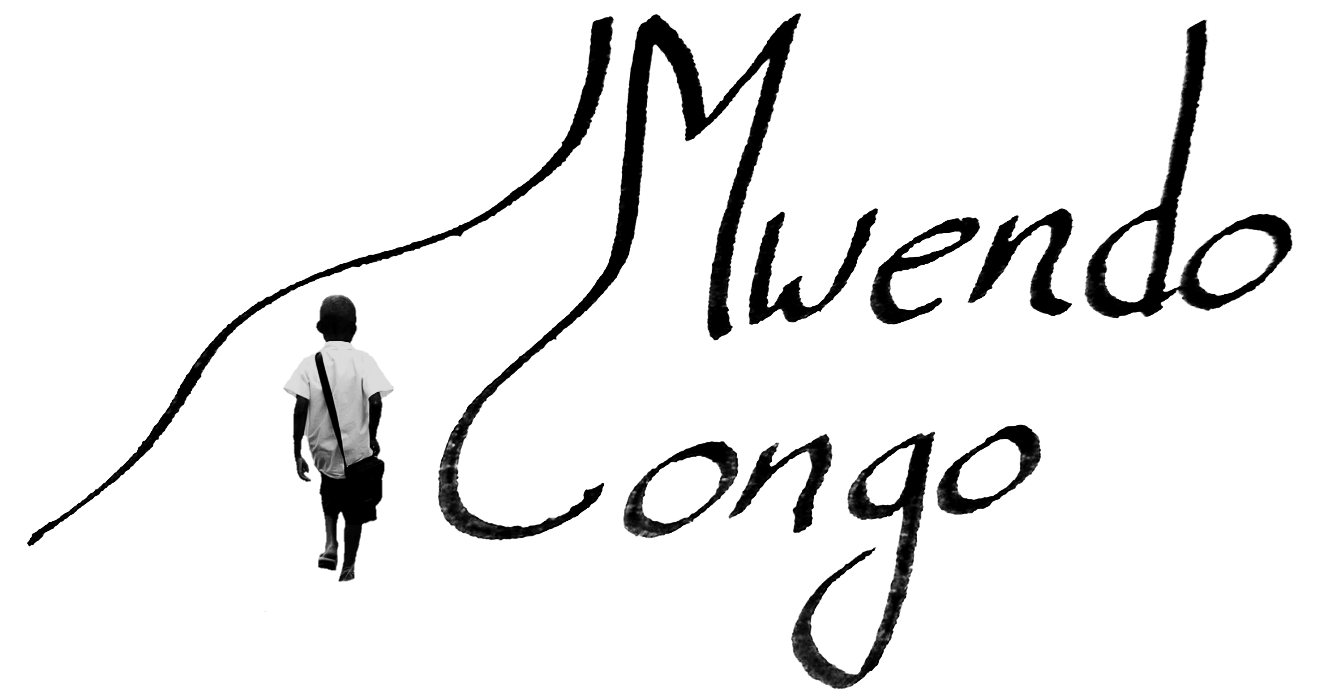Review of King Leopold’s Ghost
/King Leopold’s Ghost: A Story of Greed, Terror, and Heroism in Colonial Africa
A reflection on the book (and video) by Adam Hochschild
By Richard Mann, Mwendo Congo board member
Mwendo Congo convenes occasional film and book discussions as a part of our on-going commitment to educating ourselves about the past and present realities in the Democratic Republic of Congo. In January 2023 we invited Mwendo Congo leaders and our broader network to read King Leopold's Ghost and/or to view the accompanying documentary film of the same title - then gathered online for a powerful discussion. Richard Mann reflects on the book and film by Adam Hochschild.
“The world has forgotten one of the great mass killings of recent history”
According to Adam Hochschild, a chance reading of a footnote about Mark Twain’s involvement in the Congo reform movement led to his writing King Leopold’s Ghost (1999). Among the newspaper and magazine articles, Twain’s writings included the satirical King Leopold’s Soliloquy (1905). Twain’s 50-page pamphlet is a biting political satire of Leopold’s horrific reign of terror over the Congo Free State. The book is a fictional monologue of Leopold’s justifications for his rule. Leopold claims that he only wanted to help civilize the African “savages.” His publicly stated goal was to bring Christianity and eliminate slavery; his practice was anything but that.
In describing his book, Hochschild wrote that: “This is the story of that movement, of the savage crime that was its target, of the long period of exploration and conquest that preceded it, and of the way the world has forgotten one of the great mass killings of recent history.”
Hochschild provides a detailed, documented narrative of how King Leopold II established his autocratic rule and subjugated the Congolese to his greed for their land, resources, and labor during his autocratic rule from 1885 to 1908. Leopold considered the Congo Free State as his privately owned personal possession and not a colony like other European powers did elsewhere in Africa.
“The Congo territory is seventy-six times the size of Belgium, and he alone controlled it, without any troublesome government to interfere, and was full of subjects whose opinions and needs he did not need to take into account,” Hochschild explains.
Pope Francis calls on the world to “stop choking Africa”
On February 1, 2023, the exploitive legacy of King Leopold’s Ghost was partially “exorcised” by Pope Francis when he enjoined present-day foreign governments to stop stealing Africa’s natural resources for the “poison of their own greed.” He was visiting the capital of Kinshasa when he said: “Hand’s off the Democratic Republic of the Congo! Hands off Africa.” The Pope added: “Stop choking Africa: It is not a mine to be stripped or terrain to be plundered…”
However, Hochschild’s historical perspective shows us that the Vatican was not always as supportive of the Congolese people as Pope Francis. For example, in 1904, Cardinal James Gibbons of Baltimore “spoke out loudly” for King Leopold II at the International Peace Conference; the Vatican supported Gibbons’ position. And almost 100 years later in 2000, Pope John Paul II apologized to the world for various historical misdeeds of the church in his “purification of memory.” Unfortunately, the Pope’s list did not include the Vatican’s complicity in the Congolese genocide. (From Robert G. Weisbord, “The King, the Cardinal and the Pope: Leopold II’s genocide in the Congo and the Vatican.” Journal of Genocide Research (2003), 5(1), 35–45.)
The Vatican disapproved of King Leopold’s mistress Caroline Lacroix whom he met in Paris when she was 16 and he was 65. However, on 12 December 1909, King Leopold married her in a religious ceremony performed by his personal chaplain. This was five days before his death. During their relationship, Leopold spent large sums of money on gifts for his young mistress, and he left her with considerable wealth upon his death.
King Leopold founds the “Congo Free State”
King Leopold II had Henry Morton Stanley establish the International Association of the Congo, which was a cover organization that was controlled entirely by Leopold. Its name was intentionally like the International African Association that was a well-known philanthropic organization of famous explorers, crown princes, and grand dukes.
Because of the similar names, the United States was duped into recognizing Leopold’s Association. Subsequent to the U.S. recognition, endorsed legitimacy enabled Leopold to found the “Congo Free State” under a guise of philanthropy. Henry Morton Stanley wrote The Congo and the Founding of Its Free State: A Story of Work and Exploration. This publication was translated and distributed throughout the world. And when any of Leopold’s detractors published accounts of his atrocities in the Congo, he vigorously denied and countered their reporting with his own propaganda.
Hochschild tells us, “The Congo in Leopold’s mind was not the one of starving porters, raped hostages, emaciated rubber slaves, and severed hands. It was the empire of his dreams, with gigantic trees, exotic animals, and inhabitants grateful for his wise rule. He never visited the Congo Free State, but instead brought animals, plants, artifacts and people from the Congo to Belgium to bolster his imagination.”
Henry Morton Stanley is co-conspirator in the plunder of the Congo
Between 1874 and 1877 Henry Morton Stanley undertook a brutal expedition into the Congo interior. It was funded by the New York Herald and also by London’s Daily Telegraph. “It is estimated that Stanley likely killed hundreds of Africans along his 7,000-mile route; his journal marks the number of ‘large towns’ destroyed as twenty-eight and the number of villages as ‘three or four score” (about 60).
Later, Stanley worked covertly to establish King Leopold II’s colony. He signed treaties claiming kingdom land for almost nothing. He built a chain of trading posts along stretches of the Congo River. He was largely responsible for the extraction and shipment of the extensive resources of the Congo Free State to Belgium, which resulted in the enslavement of the Congolese.
Ivory and rubber – worldwide demand leads to brutal forced labor
In the early 1890’s, Leopold’s focus was gathering vast quantities of ivory; his instruction to Stanley was to “buy” from Africans “if necessary—at gunpoint.” To harvest ivory, it was necessary to conscript many of the local Congolese.
After the ivory boom, the growth of the worldwide rubber market exploded, which was a boon for Leopold, because rubber vines grew throughout the Congo. If a village did not meet its assigned quota, they would be burned and people would be shot. Also, when the local rubber-vine supply was exhausted, distant rubber sources were harvested and often times the women of a village were kidnapped and held captive by the Force Publique until the men of the village returned with their rubber quota.
Critics document and publicize Leopold’s human rights abuses
Hochschild outlined the efforts of major reformers who fearlessly detailed and reported on King Leopold II’s atrocities against the Congolese.
Edmund Morel was a “trusted employee of a Liverpool shipping line.” As he monitored the goods arriving from and going to the Congo, he realized that the goods from the Congo had been acquired through slave labor. Morel’s activism exposed Leopold’s atrocities through hundreds of detailed letters to the editor, flyers, books, and The West African Mail (which Morel edited). Morel became known as “the best-informed, most outspoken critic of the Congo state.”
The British House of Commons passed a resolution to send the British consul, Roger Casement, into the interior to investigate, resulting in his scathing report on the “rubber terror.” Casement convinced Morel to start the Congo Reform Association to combine their reporting efforts.
Another key reformer was George Washington Williams, a black American who was a journalist and historian. In 1891, Williams was one of the first persons to publicly criticize Leopold’s administration of the Congo. He wrote a widely published indictment of King Leopold called “An Open Letter to His Serene Majesty Leopold II, King of the Belgians and Sovereign of the Independent State of Congo.” Here is a very brief excerpt of the letter:
“Your Majesty’s Government has never spent one franc for educational purposes, nor instituted any practical system of industrialism…
“Your Majesty’s Government has been, and is now, guilty of waging unjust and cruel wars against natives…
“Your Majesty’s Government is engaged in the slave-trade, wholesale and retail…”
And Williams railed “against the deceit, fraud, robberies, arson, murder, slave-raiding, and general policy of cruelty of your Majesty’s Government…”
William Sheppard, meanwhile, was one of the first African American missionaries in the Congo who had “an empathetic, respectful curiosity about African customs radically different from the harsh, quick judgments of someone like Stanley.” He was the first foreigner to reach the town of Ifcua, which was the seat of the court of the Kuba king. Sheppard wrote a book about his experiences with the Kuba, which was the last, great African kingdom that was “unchanged by European influences.” Sheppard arrived in Africa from America in 1890.
When investigating the arrival of many refugees to his mission, Sheppard “stumbled on one of the most grisly aspects of Leopold’s rubber system […] the severing of hands.” European officers required the Force Publique local soldiers to account for every bullet they were issued to ensure that none were used for hunting or saved for a mutiny. “The standard proof that the cartridge was used to kill someone was the severed right hand from a corpse.” Often times a soldier would have to cover up his hunting by cutting off the right hand of a living villager.
Belgium exits, but independence remains elusive
Eventually social and political pressure required King Leopold to “divest himself of the country he considered his private property,” and so he eventually gave in to “the Belgian solution,” which was to transfer governance of the Congo to Belgium in 1908.
At the end of his book, Hochschild discusses the independence of the DRC from Belgium in 1960. At that time, the Congolese elected its first prime minister, Patrice Lumumba. Unfortunately, his commitment to the DRC’s economic independence was not shared by the Western world, and he was assassinated on January 17, 1961. Joseph Desire Mobutu, who was a member of the old colonial Force Publique, was assisted by the U.S. in the assassination. Mobutu took power in the Congo and was provided billions of dollars in aid during his decades of rule.



